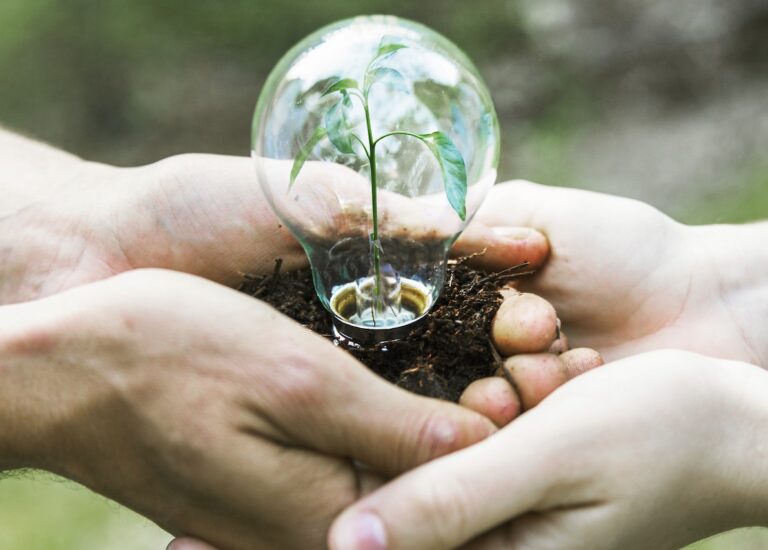Sustainability has now become a driving force for businesses as they face increasing pressure to lower their carbon footprint and fulfil Environment Social Governance (ESG) objectives. Time is ebbing away, as is the hope of achieving NetZero, but it’s a race which can still be won if organisations, including SMEs, actively work towards that goal by pledging their green commitments through setting targets and measuring their environmental impact.
Take manufacturing for example, an industry historically known for its overproduction and waste which have been significant contributors to emissions. However, manufacturers are now taking crucial strides to reverse this trend by setting ESG standards and also embracing the circular economy. Sustainable manufacturing is now being seen as not just environmentally, but economically viable.
Companies across many sectors that have developed robust ESG standards are seeing better profitability and stronger financial performance. Not only that, but it is promoting improved wellbeing among employees. Going green and growing long-term profits is no longer a choice. It is vital for businesses, no matter how small, to act now. The consequences of not taking action are becoming graver, with climate change expected to cause even more catastrophic damage to economies and negatively impact us all. This is the message underpinning this year’s Earth Day on 22nd April, with the theme ‘Build a Healthy Economy’.
Small changes, big impact
For businesses yet to take steps towards building a stronger ESG strategy, they can start by considering what small changes they could make this Earth Day. Small, incremental adjustments will accumulate over time, potentially leading to an increase in their recycling rates and a decrease in the purchase of new goods & equipment, ultimately leading to more profit on the bottom line.
Audits are a great way for businesses to streamline their waste management and ensure that their waste gets to the right place. A recycling and waste management specialist can review an organisation’s collection schedule and frequency, identify potential economies of scale and cost saving opportunities, to ensure the best value. Resource efficiency can also impact on profitability. An audit not only identifies areas of opportunity for what’s going in the bin and how it’s processed but also how choosing an optimal waste storage solution (bin, container etc.) and quantity of waste output can impact on the operational activities. It’s important to consider factors such as whether staff are spending time moving waste or having to travel a distance to dispose of certain waste streams, as this can impinge on resources.
A firm can also review its IT provision and before purchasing new stock, consider whether poor performance can be combatted by good hardware processes and a clean-up, rather than adding to the e-waste increase. If electrical goods need to be disposed of, it’s important for businesses to ensure it is done so safely and by using a professional company. Recent research from Uswitch found that the UK is the second largest producer of e-waste at 23.9 kg per person, as e-waste increases 98% since 2008.
Contamination of materials is significant in the recycling industry, so one key element for business owners is to work in partnership with their waste management provider to train staff and add notices to encourage the right items to go into the right bins, therefore increasing the quality of a company’s recyclate.
What items can be collected?
A waste management specialist should be able to collect a range of materials from businesses including:
- Paper
- Cardboard
- Cans & Metal
- Cartons
- Coffee Cups
- Glass
- Hazardous waste
- Plastics
- Polystyrene
- Wood
Royal Agricultural University: Cultivating a greener waste strategy
Working with the RAU since 2012, Printwaste have supported the university’s zero to landfill objectives to ensure sustainable waste management through a multi-site solution.
These solutions include:
- Confidential shredding service compliant with GDPR legislation; collected from eight locked consoles for maximum security.
- Dry mixed recycling including plastic packaging and drinks cans, paper, as well as cardboard. These items are collected in mixed recycling bins and sorted at a materials recycling centre for repurposing into new products.
- Management of hazardous waste and non-recyclable waste streams as required, including batteries, laboratory waste and cleaning products. Where possible Printwaste deconstructs items into component parts for recycling, or employ energy recovery (Waste to Energy) for any items which have no current methods for recycling.
- Sustainable management of end-of-life, bulky household items from student housing on campus, including furniture and mattresses for example. These are diverted from landfill as standard, and sustainably recycled where possible or sent for energy recovery if not.
- Event-specific waste management, deploying additional bins and units to provide extra capacity for specific events or busy periods.
Andy Hughes, Estates and Facilities Administrator for the RAU says, “As a university with a focus on rural and environmental education, sustainability is a core focus for us and finding a single supplier to help us achieve zero to landfill was a must. Printwaste has provided an effective, efficient process to our waste management that tackles the everyday waste as well as the hard-to-recycle items. They have implemented it with our needs and students in mind, and have given us a comprehensive, cost-effective solution.”
Just by updating waste management practices to achieve zero waste to landfill and deliver efficiency gains is a step all businesses should take now to start shaping their ESG strategy, so that by the next Earth Day, prospects for the planet may just be a little brighter.

